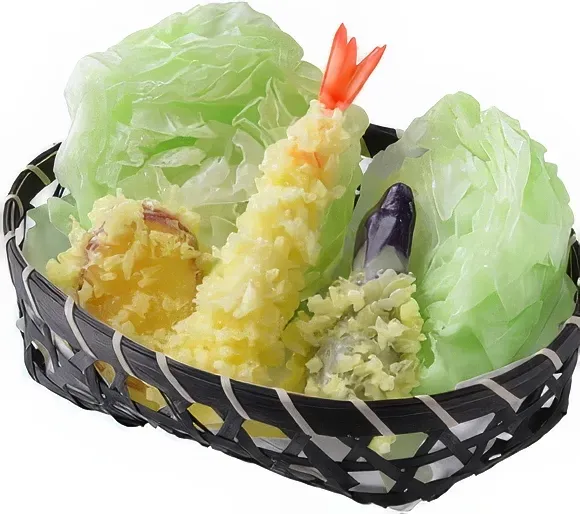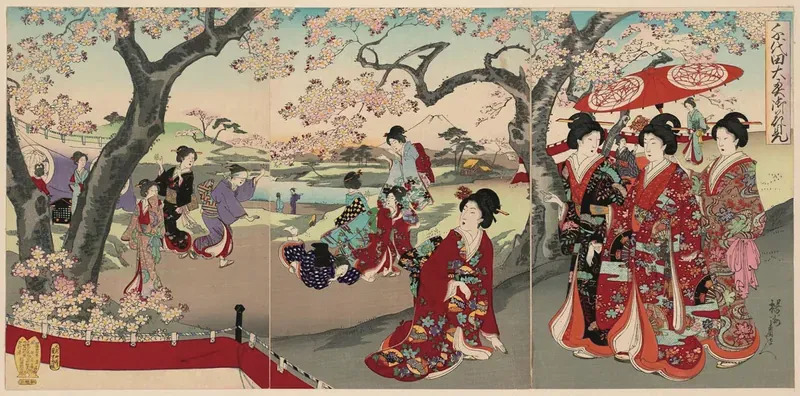Never Pay For Beer AGAIN!
Mastering Japan's Favorite Decision-Making Tool
Think you've mastered Japanese culture? Maybe you can slurp ramen without splashing, navigate the labyrinth of Nagoya Station, and even survive a karaoke marathon. But there's one final boss battle awaiting every foreigner in Japan: Janken, the deceptively simple game we know as Rock-Paper-Scissors.
Why Janken Matters More Than You Think
While Westerners might dismiss it as child's play, Janken is serious business in Japan. It's the Swiss Army knife of decision-making, used everywhere from corporate boardrooms to izakaya tables. Need to decide who pays for dinner? Janken. Which surgeon performs the operation? Janken. Who gets the last piece of karaage? You guessed it - Janken.
At first, this might seem like leaving important decisions to chance. But there's a beautiful simplicity to it: Janken removes the awkwardness of confrontation and the burden of responsibility. When Janken decides, nobody needs to feel guilty or resentful. It's conflict resolution at its most elegant.
A Noble History
Forget what you've heard about Janken being a post-war American import. This game has been around since ancient times—we're talking 200 BC Japan. The name itself comes from the Chinese characters for "rock" (Jan) and "fist" (ken).
The game's spread across cultures is fascinating. It became "Rochambeau" in Europe (named after a French count, though history is mysteriously quiet about why), "Muk-Chee-Bah" in Korea, and "Bao Ying Choob" in Thailand. Today, it's even the subject of serious academic study, with international programming competitions and official tournaments organized by – you guessed it – The World Rock Paper Scissors Society. (https://wrpsa.com/)
How to Play Like a Local
While the basic concept might be familiar, Japanese Janken has its own rhythm and rituals. Instead of "Rock, Paper, Scissors, Shoot!" players chant "Jan-Ken-Pon!" with just two priming motions. In case of a tie, you'll hear "Aiko deshou!" (It's a tie!) before the next round.
The Japanese play lightning-fast compared to Westerners, often skipping the priming motions entirely during rematches. Master this speed, and you'll start blending in with the locals.

Advanced Strategies
Want to up your game? Here are some battle-tested approaches:
The Psychologist's Gambit
Research by Japanese psychologist Hiroshi Amano shows that when surprised, people tend to throw rock about 50-60% of the time. Use this to your advantage by throwing paper when your opponent seems rushed.
The Meta-Predictor
Like a chess grandmaster, think several moves ahead. But remember Sun Tzu's wisdom: "The common warrior thinks but one step ahead. Shall we not, then, think three?"
The Wildman Strategy
If you're up against a skilled opponent who's reading your patterns, throw them off by going completely random. Sometimes, chaos is the best strategy.
The Historical Approach
Study your frequent opponents like a scholar. Watch their matches, learn their patterns, and strike when it matters most - like when deciding who pays for that expensive sushi dinner!
Modern Applications
Today, Janken continues to evolve. It's used in professional sports for deciding first moves, in business meetings for assigning tasks, and even in artificial intelligence research. The International RoShamBo Programming Competition challenges coders to create the ultimate Janken algorithm, proving that this ancient game remains relevant even in our high-tech age.
The Spirit of the Game
What makes Janken truly special isn't just its simplicity or ubiquity - it's how it reflects core values of Japanese society: fairness, efficiency, and harmony. It's a reminder that sometimes the best way to resolve a conflict is to turn it into a game where everyone can laugh, regardless of the outcome.
So the next time you find yourself in Japan facing a decision, remember: Janken isn't just a game - it's a cultural institution. And while you might never master the art of eating natto with a smile, with these strategies, at least you'll have a fighting chance at not always being the one stuck with the bill.
Speak the Language of Janken
Before you head off to test your newfound Janken mastery, why not learn to play like a true local? Here's your essential Janken vocabulary guide that'll have you sounding like a pro (even if you're still losing):
じゃんけん (Janken)
The game itself. Master this word first - you'll hear it everywhere!
ぐう (Guu) - "Rock."
Throw this while loudly declaring it, and you'll sound like you know what you're doing. Just don't use it every time (we see you, Bart Simpson).
ちょき (Choki) - "Scissors."
Pro tip: It sounds a bit like "choke," which is what you're trying to make your opponent do.
ぱあ (Paa) - "Paper."
Open your hand wide and declare this with confidence. Even if you lose, you'll lose in style.
じゃんけんぽん (Janken pon)
The full battle cry. Think of it as the "Avengers Assemble!" of Japanese decision-making.
あいこでしょう (Aiko deshou)
"It's a tie!" Practice this one - you'll use it more often than you think.
さいしょはぐう (Saisho wa guu)
"First comes rock" - part of a children's song that every Japanese person knows. Drop this in casual conversation to earn instant cultural points.
かち (Kachi)
"Victory!" Hopefully, you'll get to use this one occasionally.
まけ (Make)
"Loss." Let's be honest - as a beginner, you'll probably be saying this one a lot.
あっち向いてほい (Acchi muite hoi)
"Look that way, hoi!" A fun follow-up game that often comes after Janken. Think of it as the bonus round you didn't know you needed.
Master these phrases, and you'll not only play Janken - you'll live it. Even if your strategy needs work, at least you'll sound authentic while paying for yet another round of drinks decided by an unfortunate paper-beats-rock scenario.
Remember: in Japan, it's not just about playing the game; it's about being part of the culture. So throw those hands up with confidence, shout "JAN-KEN-PON!" like you mean it, and join in this time-honored tradition of leaving important decisions to this surprisingly sophisticated game of chance and strategy.

Nagoya Buzz
Events, local info, and humor for the international community of Nagoya, Japan.
Follow Nagoya Buzz :









Leave a Comment